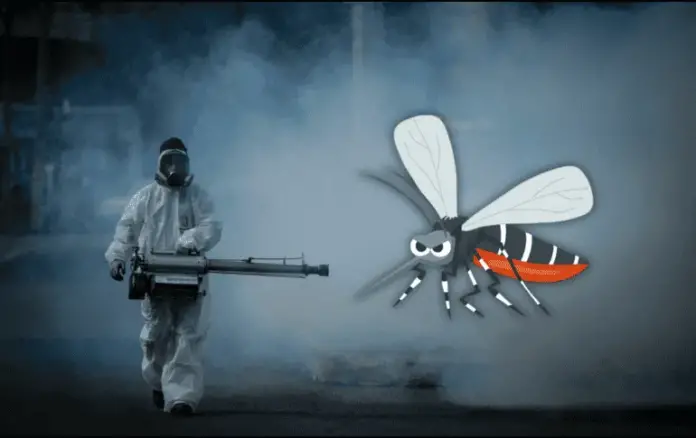
Dengue is a serious problem for Jalisco. The State ranks first in cases in the country, with more than nine thousand 700, according to the federal Ministry of Health. The bad news is that this disease continues to spread.
For this reason, the State Ministry of Health has constantly deployed brigades in all the colonies of the Metropolitan Area of Guadalajara (AMG), particularly in the 21, where most of the infections have been concentrated.
Among the measures, personnel from the agency approach homes and remove junk and objects that could be breeding grounds for mosquitoes, as well as the mobilization of trucks that fumigate for several hours a day.
However, insecticides and brigades are not enough to eliminate the mosquito that transmits the disease, so citizens must do their part to eliminate Aedes aegypti, by supporting from their homes or lands to remove objects where the mosquito that transmits the disease can reproduce, said Ángel Nuño, deputy director general of Programs for the Jalisco Health Services.
Which are the neighborhoods with the most dengue in Guadalajara?
Municipality Neighborhoods
Zapopan Agua Fría, Lomas de Tabachines, Colinas de Tabachines and Balcones de la Cantera
Tonalá Lomas del Camichín, Loma Dorada, Jalisco sections 1, 2 and 3; Loma Bonita and Basilio Vadillo
San Pedro Tlaquepaque Nueva Santa María, Francisco I. Madero, Terralta, Miravalle and El Tapatío
Guadalajara Rancho Nuevo, Echeverría, Autocinema, La Esperanza, Balcones de Oblatos, Talpita y Blanco and Cuéllar
Why have dengue cases increased?
The increase in infections in the State is due to several reasons. The first is the greater resistance of the mosquito that transmits dengue to preventive fumigations. The World Health Organization (WHO) and the Pan American Health Organization (PAHO) affirm that the larvae of Aedes aegypti, the mosquito that transmits dengue, can survive insecticides.
A second reason is that climate change has increased temperatures and periods of extreme rainfall, encouraging the proliferation of a mosquito that has also adapted to cold climates.
In addition, the dengue virus has mutated and causes more infections. “There may be reinfections. There are four serotypes, so there is a greater chance of getting sick,” warned Fernando Petersen, state Secretary of Health.
Due to these causes, health authorities call on citizens to take preventive measures to eradicate the presence of the mosquito that transmits dengue.
What to do about dengue?
Ángel Nuño Bonales, deputy director general of Programs for Jalisco Health Services, called on people to check and remove objects, pots and containers that accumulate clean water and may be breeding grounds for dengue.
“We must identify those places inside our homes, in our water tanks, in places where pets drink water, in buckets, in bottles, in the windows around. It is in that water where the mosquito that can transmit dengue predominates.”
He added that in the case of cisterns, water tanks or sinks, they should be washed only with soap and water, and those containers should be turned over so that the larvae fall out and new mosquitoes do not hatch.
Kevin Javier Arellano, an academic and specialist in Health at the University of Guadalajara, recommended some measures to avoid the bites of the mosquito that transmits dengue, “such as the use of insect repellents, the use of long-sleeved shirts and pants that cover our shoes.”
Source: informador






